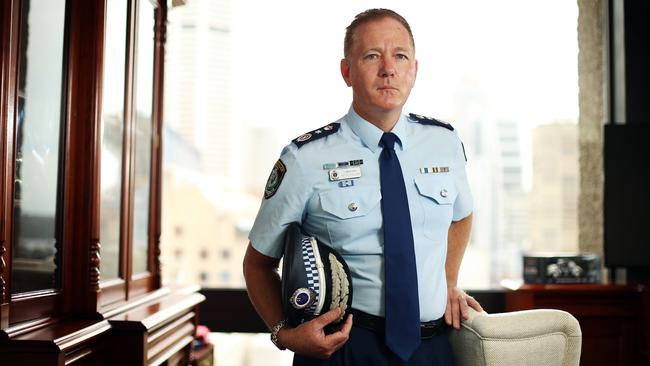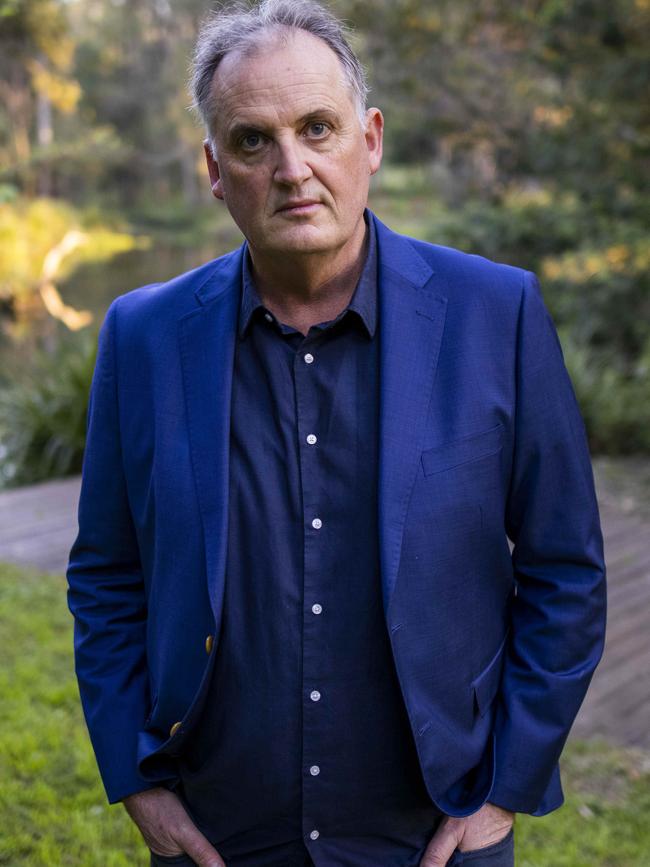Teacher’s Pet podcast ‘pivotal’ in delivering justice for Lyn Dawson
Former NSW police commissioner Mick Fuller has acknowledged the pivotal role of The Teacher’s Pet podcast in delivering justice for Lyn Dawson 40 years after she vanished.

Former NSW police commissioner Mick Fuller has acknowledged the pivotal role of The Teacher’s Pet podcast in delivering justice for Lyn Dawson 40 years after she vanished from Sydney’s northern beaches.
Mr Fuller said the stunning conviction this week of Lyn’s husband Chris for her murder was testament to the power and reach of podcasts and investigative journalism.
“The public interest at the end of the day is what hopefully generates evidence that police don’t have,” Mr Fuller said.
“It’s just that one piece of the pie that we need, that one piece of the puzzle, to hopefully get the matter put before the court.
“I think in this case Hedley (Thomas) really hit on a couple of key issues that captured not just Australia, I mean this thing captured the world, and people came forward with new evidence that I believe ultimately assisted.
“It was the most powerful investigative tool I’ve ever seen.”
Thomas, the journalist behind The Teacher’s Pet, has described Mr Fuller as a “game changer” whose intervention during the 2018 series restored public confidence in the NSW Police Force.
Two months after the launch of the series, Mr Fuller publicly apologised to Lyn’s family for past police failings in the case and cleared the way for a new dig at her former Bayview home in search of her remains.
It made him one of the key players of the series, along with people such as Lyn’s loyal friend Sue Strath, who pushed police for years to properly investigate her suspicious disappearance, and heroic neighbour Julie Andrew.
Ms Andrew is heard at the start of every episode saying she just wanted justice and for Lyn’s little girls to know she didn’t leave them. She was singled out by trial judge Ian Harrison this week as being a strong and credible witness.
Among other key figures vindicated by the verdict is Carl Milovanovich. He was the coroner who presided over the 2003 inquest into Lyn’s disappearance, and told the podcast the circumstantial evidence was “overwhelming” and that a jury given all the facts would find Dawson guilty.
But Thomas says it was the intervention by then-police commissioner Fuller that restored public faith in police and ensured witnesses could be confident in coming forward with information.

NSW police under Mr Fuller also launched Strike Force Southwood to investigate revelations in the podcast of sexual assaults of students by teachers on the northern beaches in the 1970s and ’80s.
“I feel like there’s still an untold story in that,” Mr Fuller said.
Mr Fuller said unfounded criticism of modern-era police over the case was one of the key factors that prompted him to speak out at the time.
The community also expected leaders to own mistakes early. “There will always be those who judge me positively and negatively for decisions I made,” he said.
“But I will say this: I have no regrets.”
A fully circumstantial case with no body, Mr Fuller said it should give hope to all victims’ families.
“If this case can be solved, then any case can be solved,” he said.
A highlight of the podcast series was the discovery of Dawson’s handwritten statement to police from August 1982.
Among its lies and omissions, it recorded Dawson blaming his marriage difficulties on Lyn’s spending, making no mention of his sexual relationship with a teenager.
Two coroners and a previous lead investigator didn’t know about it.
Thomas found it, and so too did the new police unsolved homicide team investigation led by Detective Senior Constable Daniel Poole.
“The quality of Dan’s investigation and the quality of Hedley’s journalism actually got the outcome we were all hoping for,” Mr Fuller said.






